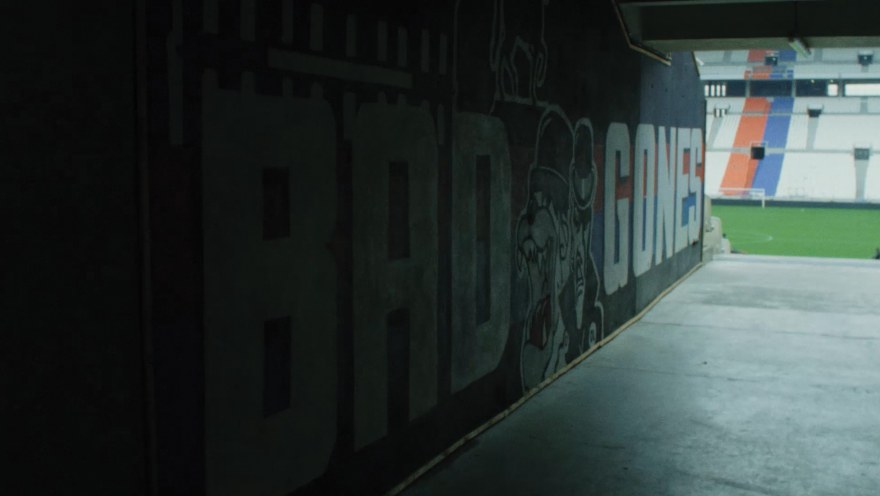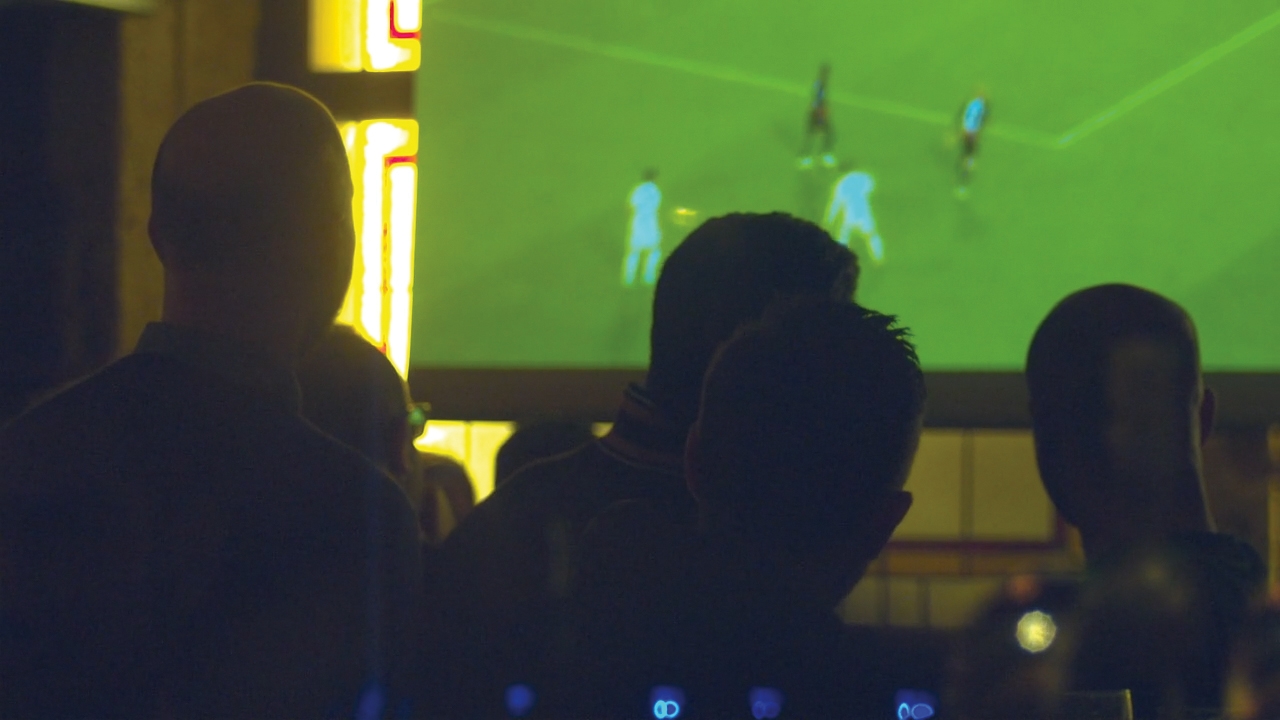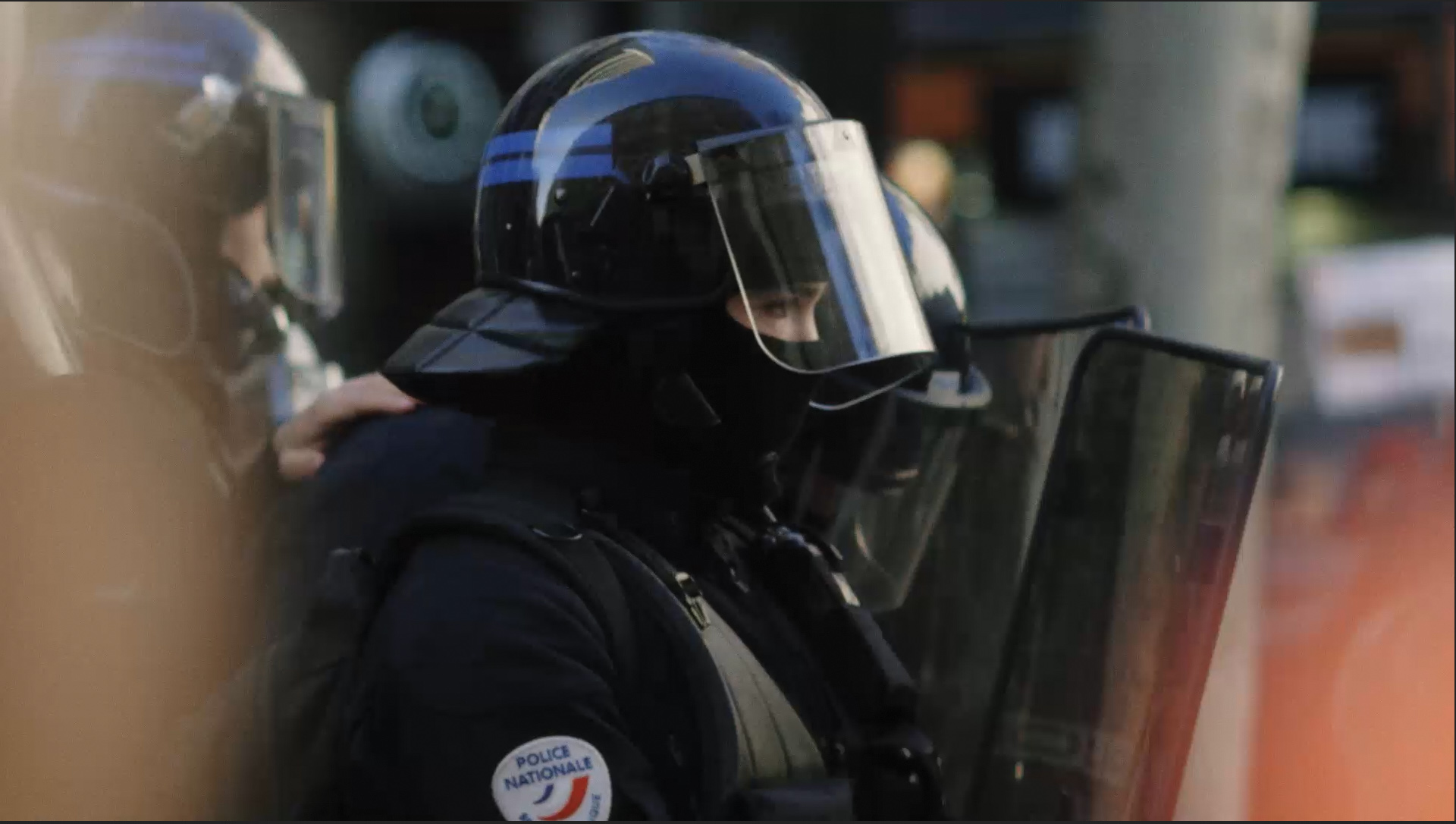Tea time with Tu seras un ultra
Interview with Maxence Voiseux, director of Tu seras un ultra
What was the starting point for this film?
The producer, Alexandre Hallier (at La Générale de production), was working on a documentary series about the world of ultras. He wanted to bring in different filmmakers. I’d met Hallier as part of a documentary committee and we agreed we’d work together on something one day. Our shared taste for sport and politics brought us together and Alexandre called me up to come and work on the series. It was a first for me: directing a film that I hadn’t developed, almost like a commission of sorts. I liked the idea and the characters were interesting so I thought that was enough to get onboard. The only constraint was the film’s length which was relatively short: ten minutes per episode. I was meant to direct a second episode in Berlin just before the first lockdown was ordered in March. So the series was strongly impacted and has fewer episodes than initially planned.
Describe the process of making the film, from the writing stages to post-production.
That was also a first: I had nothing written beforehand. I did plenty of research, I did some scouting and I thought about how to set things ups. The only thing the producer and the channels requested was a small note explaining each filmmaker’s point of view on their episodes. I immediately opted for an approach very close to fiction. I’d describe the film as a documentary essay. I filmed over five days in different parts of Lyon and the stadium (the old and the new ones), and used archival footage. Those images have a certain strength but they don’t lend themselves to sequence-shots. They’re fragments of atmosphere, of traces, and notably they evoke the ultra culture in Lyon. I knew the story would come through during editing. The bulk of the work was documentary: I held many hours of interviews with ultras in order to plumb the ultra identity, their story, each one’s particular path… They came from the two main kops of Olympique Lyonnais: the Bad Gones and Lyon 1950. Those two groups of supporters are both committed and they’re rivals. They’re especially tied to the history of the city and the club. I learned that to some extent ultras defend a territorial identity (of their city, its history, food, language, culture) as much as they do football. Through the interviews, I sketched “my” ultra’s trajectory, which was then embodied by the actor Alexandre Schreiber.
The film suggests that belonging to the ultras has become the sole identity for the father, whose life is gradually crumbling. Were you trying to use your film to investigate identity?
I’d say the question of belonging to the ultra community, which I liken to belonging to popular culture. I managed to bring the film towards the questions that I deal with in my work in general.
The film also talks about transmission from one generation to the next, but in this case it fails: through his voice more than through the images, the son seems to show that he’s always remained aloof from that world. Is that the intention behind your choice?
The character’s story is that of a young man who is led despite himself into a story he hasn’t chosen. He starts off as a kid who doesn’t like football but who wants to be part of the ultra community in order to “save” his father who was excluded from that. Working on ultras helped me to shed numerous stereotypes – which (I hope) the series will also do. Each ultra has his own reason for getting involved. In their way, they talk about what it means to be a community, to defend a certain idea of popular culture. Talking about that scene, showing that place in that moment of time, meant first off telling their story from a narrow perspective. It also meant talking about a certain popular culture, a certain social and political context, about mass surveillance, which ultras are victims of. Football clubs have become real brands that need to be defended. Global football, a caricature of market-driven sports, embodies the excesses of the market. Nowadays stadiums are built according to lucrative, economic, protected strategies. That movement has brought with it a brutal gentrification, and therefore also a deep disaffection of the working classes who find themselves gradually pushed away from the sports confines. In these changes, the ultras represent the pillars of the culture of the club and the city, in their love as well as the excesses of their support for the club.
What do you think the future holds for short films?
Cinema is entering a period of big changes and it’s a given that shorts will be greatly affected – in terms of both financing and distribution. I don’t think online platforms are strongly attracted by short films – but who knows? I think we have to keep fighting for this form so that it remains a laboratory for new writing, surprising stories and especially for cinematic acts that are impossible to attempt or achieve in feature films.
If we were to go back into lockdown, what cultural or artistic delights would you recommend to alleviate our boredom?
Reading the collected works of Jean Echenoz.
Tu seras un ultra is being screened as part of National Competition F7.










